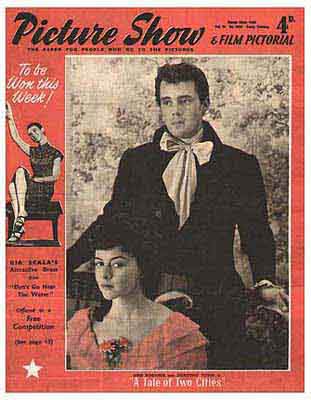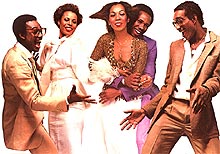December 24, 2004
Deganwy diary

Back in Deganwy, midway between Llandudno and Conwy, for Christmas.
1. A world away from last Christmas, when the Alien Parasite Entity had me by the CNS. Escaped being on the Psych ward by a hair’s breadth. A world away… As I’ve said before, what separates clinical depression from sadness or melancholy is not only its chronic persistence but its ontological claims: this is the Truth of the world, the Truth of what you are….
2. Already gearing up to the faster pace of life here. You can get ten times as much done in a day here, without the hylic gravitational pull of a massive (over)population dragging everything down into sclerotic slowness.
Because from out here London seems, as Ballard never wastes an opportunity to sneer, so nineteenth century. A walk to the end of the street an Odysseyean quest…. The sheer mong density, organisms pressed together into the zombie meat trucks like a fast-breeding reptile colony under glass….Necks twisted so as to ensure that catching another’s gaze is not even an option, the socially-required posture of mutual passive aggression freezing faces into expressionless rictus masks (Daleks dressed as humans marking their territory with a briskly brandished wall of Evening Standards)…
Is there any reason that the future shouldn’t be more like this, though? Weren’t we all supposed to be able to live in quiet places if we wanted to now that the Net can connect more or less anywhere to anywhere else? Why don’t we leave London and its Human Plague to fester in its filthy, sim-sweltering microclimate?
Modernity and modernism don’t necessarily equate with modernization. We should never forget that.
3. A scene straight out of Zizek.
We’re about to have dinner. I am going to have a glass of Shloer (the k-punk soft drink of choice) and I ask my dad if he wants to try it. He says he’d liked to, and since my mum says nothing, I assume that she wants to stick with her usual choice, water.
So I pour a glass of Shloer for my dad and myself, and a glass of water for my mum. She takes a swig, grimaces and then hands it back, saying, ‘You have it.’ I’m puzzled. ‘Isn’t that what you wanted?’ ‘Well, I did want to try it, but I don’t like it, it’s a bit… tasteless…’ “But, it’s water. Isn’t that what you wanted?’ ‘Yeah ….that’s what I wanted. But wasn’t THAT Shloer? No? Give it me back to me if it’s water, that’s what I wanted, yeah…’
4. The If debate on BBC2… Neurofascists tracing back violent crime to neurology… As Oliver James, a man for whom I gained new respect, pointed out: well, of course, anger and violence are neurologically instantiated but that tells us nothing about causation . Pleased to see that James forcefully asserts that experimental data emphatically demonstrates that genetics has minimal impact upon propensity for violence. Much less violence in Switzerland, genes substantially the same. What, short of neurosurgery, is the solution favoured by neurocops then? Well, better nutrition, cognitive stimulus and more affection --- and, of course, these factors are NOTHING WHATSOEVER to do with class? The problem with neurofascists and genetic determinists is that they are not reductive enough. Their whole libido consists in playing the Pantomime Evil Theorist Debunker role in relation to fluffy Romanticism - so that their positivism still leaves in place a distinction between neurology and emotions, the social etc.
5. Listening to the first Roxy album while walking along the beach Wednesday evening. Would say it was glamorously windswept, but that doesn’t get anywhere close to the battering pressure of the wind coming off the Irish Sea.
’You were so pure/ not for this/ world…’
Think again about this Dionysian thing. Who is less Dionysian than Roxy?
 |
Struck again by Roxy’s unbelievable audacity… or was their iconoclasm just the innocence of the truly alien? On the tracks I’m most often drawn back to these days, the glacial post-traumatic ballads - ‘The Bob Medley’, ‘Sea Breezes’ and ‘Chance Meeting’ - Ferry sounds like an amnesiac Bogart/Bogard (Humphrey or Dirk)* who has forgotten more or less everything (about Pop in any case) since circa 1956. (On the tracks in which it features, rock is now reduced to an allusion - that’s audacity, isn’t it? Rock is not an ontology, not something to live inside any more, but simply a collage component….)
What has been erased, precisely, is the priapic Dionysianism of Jagger, who was BOTH more AND less of a man than Ferry, as Penman so tellingly put it. When Ferry covers ‘Sympathy for the Devil’ on his first solo LP, it’s (presumably deliberately) limp, bloodless. Stunning to think, when you hear his curdling Coward** catatone on ‘Sea Breezes’ and ‘Chance Meeting’, that Ferry’s sonic influences were almost all American Soul singers. No traces of THAT in the Ferry voice then, which was bound by zero-affect neurasthenia on one side and braying hysteria on the other (with Rawk-Soul Passion nowhere). What was Ferry drawing upon to produce a sound that was so Anglo?
Find it impossible to separate Roxy from Lacan in my mind now. (‘Mother of Pearl’ and Seminar XX - on Feminine Sexuality - both 1973.) This is partly why I find it odd that people baulk at the idea that Freud and psychoanalysis should be part of Cold Rationalism, or that CR is somehow inherently hostile to music. CR would be nothing more than the worst kind of arid academic posturing unless it made the move that Spinoza pioneered and Freud developed – that there is no irrational, there is no random, everything has a mechanical cause.
We’ve been running round/ in our present state/ hoping help will come from above
The reason why love songs work, of course, is because amour, far from being fou – unpredicatable! spontaneous! – is, quite to the contrary, an invariant structure. Even the most sentimentally afflicted-besotted must know, really, that they and the songwriter aren’t, actually, the only two people who have ever felt like that…

The jouissance of being-in-love, as we all know, is to do with becoming an automaton, you find yourself unable to resist re-citing all those corny lines - many of which are not not statements of feelings per se, but reflexive statements about what you are feeling i.e. ‘I’ve never felt like this before…’ - but REALLY meaning them THIS time, no, really, heh heh. To be in love is to be a cheap actor in the oldest of films. (As Ferry will sing much later, ‘I can’t believe/ it’s the same old movie/ that’s haunting me…’ )
But even angels there/ make the same mistakes
In love, in love
We have to be careful here, though. Think that much of the antipathy to CR is aroused by mistakenly equating it with detached cynicism. There is a detachment, but it is not total, and it is not cynical. The Lacanian gaze is Cold but not objective-positivistic. Lacan couldn’t be further from someone like A. J. Ayer, scornfully dismissing all statements about ethics and religion as meaningless babble. And for Spinoza, remember, ethics and religion come first. The aim is attunement of emotions to reason. It is only those who never destroy themselves too much who can retain a hostility to this aspect of Spinozism. Only those who have not had their reason totally disabled by their emotions can think that there is anything glamorous about the so-called irrational.
Thought trains set in motion/ Wheels in and around/ Express our ee-mo-tions….
The demi-automatism of being-in-love is not about being transported into mindless ecstasy but a reflexive permutating of a series - well, ultimately, two --- propositions: 'She loves me....' 'She loves me not...' That is why Masoch is the Truth of the amorous impulse --- the open secret of amour is that it is hostile to and disappointed by any supposed point of satisfaction or resolution. The function of the contract in Masoch is not to regulate the behaviour of the partners but to introduce the Undecidable. Is she merely acting out her role of ice queen or is that what she 'really' feels? Was her dropping of the masks still a part of the charade - or not?
What people hunger for, what they nostalgically crave, is exactly this state where their relationship with the other was still in-tension, not resolved, not Certain. Which reinforces what we already know: the greatest erotic-ethical problem we face is to maintain affection and enigma when the uncanniness of the period of courting puppetry is over, when the in-lovers become lovers and later partners, shared investors in a homely all too heimlich domestic scene in which they are forever condemned to be persons, the worst role of all...
It is CR's detachment - from reason-melting sentimental goo as much as from hot passions - that allows us to develop compassion, above all for ourselves. Sad passions are hard taskmasters.
* Ferry quickly migrated from made-up Glam queen to the 'classic' Cassablanca image ('I feel much more comfortable dressed like this'). But his noir persona was already replicant.
‘Today, even the mass media is aware of the extent to which our perception of reality, including the reality of our innermost self-experience, depends upon symbolic fictions, Suffice it to quote from a recent issue of Time magazine: “Stories are precious, indispensable. Everyone must have his history, her narrative. You do not know who you are until you possess the imaginative version of yourself. You almost do not exist without it.” Classical noirs remain within these confines: they abound with cases of amnesia in which the hero does not know who he is or what he did during the blackout. Yet amnesia is here a deficiency measured by the standard of integration into the field of intersubjectivity, of symbolic community: a successful recollection means that, by organizing his life-experience into a consistent narrative, the hero exorcizes the dark demons of the past. But in the universe of the Blade Runner or Angel Heart, recollection designates something incomparably more radical: the total loss of the hero’s symbolic identity. He is forced to assume that he is not what he thought himself to be, but somebody-something else.’ (Zizek, 'Tarrying with the Negative')

What you hear on Ferry’s songs up until at least ‘Mother of Pearl’ is Ferry exploring the Human Condition, as painted by Magritte, half-inside, half-Outside it (which is exactly what the condition is). (I suppose the Barthes of A Lover’s Discourse is someone with whom Ferry has an obvious affinity). A Cold procedure. And as Simon himself has said, Ferry’s voice at this stage is so cold it’s positively reptilian. Later, he will warm up, become enframed, believe in the role... and then, my God, before long... it's Otis...

** Easy to forget that Coward's Classic Anglo-persona, too, was simulated. He was declasse, son of a piano tuner, someone who fitted in nowhere, and not only because of his sexuality. (Fitting that Morrissey should have used a sample from one of Coward's flicks about working class life between the wars ['This Happy Breed' I think] at the beginning of 'The Queen is Dead'.) The story that most sums this up is the one about a young Coward having an affair with a boy toff. He wasn't actually excluded... just forced to live in servants' quarters on the edge of the grounds.
6. Been listening to Chic a great deal recently (btw does anyone out there own the albums? Can't get em for love nor money), so, when in the non-franchise Local record Shop, I eagerly snap up the Jan 04 Postpunk issue of Mojo , which also features a Chic story.

Can’t hear the precision-tooled discipline of their sumptuously minimal anorgasmic plateaus as Dionysiac-irrational either. Rodgers comments: 'I saw Roxy Music. Wow! Did THAT change my life.'
NEXT ISH: end of the year round up
COMING UP: Becoming-Lenin, Joy Division and amphetomodernism, Why Jung was not a Psychoanalyst
